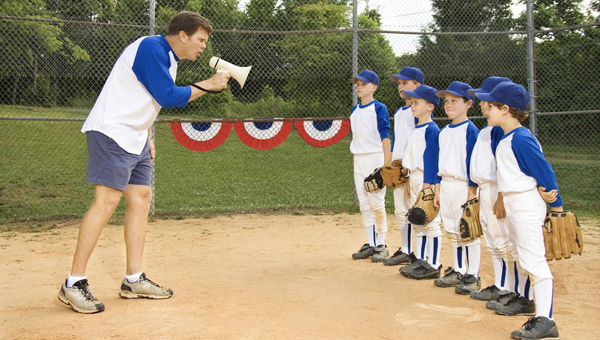Matosic et al in the Scandinavian Journal of Medicine and Science in Sports have an interesting article examining the impact of coach narcissism on whether athletes are more autonomous or are more controlled. The authors define narcissism as follows: “Narcissism is a self-centered, self-aggrandizing, dominant, and manipulative interpersonal orientation. Individuals… seek attention and admiration, feel entitled, and are amoral, focusing on personal benefit, even at the blatant expense of others (pg. 255).” The authors suggest that this is not a positive coaching trait due to the focus on needs for dominance, admiration, and the tendency to make coaching decisions that are good for the coach but not necessarily for the athlete.
The authors studied over 200 coaches in the U.K. They studied autonomous vs. controlling coach behaviors, narcissism, dominance, and whether the coaches were empathic. The autonomous vs. controlling coach behaviors were assessed via situations with a list of behaviors (some autonomous like have a one-to-one meeting) to controlling (yell at the player). Narcissism, dominance, and empathy were assessed via personality tests.
Results:
- There was a strong relationship between narcissism and controlling behaviors.
- There was an inverse relationship between narcissism and empathy.
- There was a strong relationship between empathy and autonomous behaviors.
This should make sense. If (as coaches) we’re focused on ourselves and our success, we tend to view success as a reinforce to our excellence. In other words, our team won because we’re a great coach. On the other hand, we view failures as someone else’s fault. In other words, we lost the game because our athletes didn’t play well.
Being more focused on ourselves leads to more controlling behaviors. These are things like yelling, shaming, punishing, offering few (if any) choices to the athletes, etc. The authors note that in the research there is a negative relationship between controlling behaviors and athlete motivation.
Now, everything about narcissism and controlling behaviors has negative connotations when presented like this. What’s unclear is if this is bad for performance. We can all recognize that there are player’s coaches (i.e. empathic, friendly, etc.) and disciplinarian coaches (i.e. the controlling, narcissistic types). Both win championships. This is because there is a lot more to winning than just the coach’s personality traits. This is where team development, x’s and o’s, creating a culture, recruiting, and being true to yourself all come in.
What goes into this? First, recruiting is huge if this is something you are able to do. You need to have the right type of athlete to suit your personality and system. Second, being able to teach is important. I always say this, fundamentals matter. If athletes are able to execute fundamentals to a high degree it saves time and mental effort so they can focus on other aspects of the game. Third, how you put the players together (i.e. the x’s and o’s) but this only works if the first two things have been done. Fourth, developing a culture of excellence. Every team has a culture, some are negative and some get things done. You want to develop a culture of hard work, expectations, accountability, and team. Finally, coaches need to be adaptable because athletes turn over and the game changes over time. Basketball is a great example of this, a lot of coaches are moving away from set plays and moving towards motion-style offenses that rely more on principles and players are coming up that are used to playing like this. If you can’t adjust you’ll be left behind.
Matosic, D., Ntoumanis, N., Boardley, I.D., Sedikides, C., Stewart, B.D., and Chatzisarantis, N. (2017). Narcissism and coach interpersonal style: A self-determination theory perspective. Scandinavian Journal of Medicine and Science in Sports, 27: 254-261.
(Revised 6/7/21)

